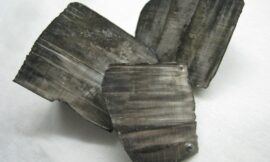In this episode we speak with Bob Howard and Taylor Leander from Resource Royalty, LLC about 1031 Exchanges and how mineral interests can fit into this strategy. As you may know, a 1031 Exchange (also known as Like-Kind Exchange) is a strategy that is defined under Section 1031 of the Internal Revenue Code that generally allows an investor to defer paying capital gains tax on certain types of investment properties when they are sold as long as certain conditions are met.
If you would like to learn more about IRS valuations for determining the cost basis for minerals or royalties, listen to Episode 32 with Rob Prentice.
This episode was recorded before the impacts of COVID-19 and before the price of crude oil tanked in early March. This topic may be even more important in helping to maximize the return on an investment, especially considering the challenging market conditions we are faced with in 2020.
Using the embedded player above, you can download the episode to your computer or listen to it here! Be sure to also subscribe on iTunes!
It is important to note that this conversation is being shared for informational purposes only. This information should not be construed as legal or tax advice. As always, you should consult with your CPA and/or a qualified attorney regarding these strategies. Also, the powers that be would like me to remind you that this is not an offer to sell.
About Our Guests
Robert “Bob” E. Howard, Co-Founder and President of Resource Royalty. Mr. Howard is a founder, president of the Parent Company and manager of Resource Royalty and brings significant experience in investment management, including capital formation and alternative investments. Mr. Howard spent 30 years in the investment industry with Merrill Lynch, Lehman Brothers and Deutsche Bank. Alex Brown. Mr. Howard’s career began in Tulsa, Oklahoma with Merrill Lynch, took him to New York with Lehman Brothers, and he has spent the last 20 years in Dallas. In 2006, Mr. Howard retired as a Managing Director of Deutsche Bank in Dallas. As a native Oklahoman and an oil & gas investor for many years, Howard blends his investment background with his personal experience as an oil & gas investor. Mr. Howard’s investment advisor background with Wall Street firms gives him the natural understanding of dealing with investor clients and their requirements. Throughout his career, Mr. Howard’s investment approach included an allocation into various alternative investment strategies including hedge funds, real estate and oil & gas. Mr. Howard currently receives distributions from several oil & gas Offerings, which makes him an investor as well as an advisor. At Resource Royalty, Mr. Howard leads the acquisition team and is in charge of capital formation.
Taylor Leander: As a native Houstonian, and spending his childhood in Anchorage, Alaska, Taylor developed a passion for the oil & gas industry at a young age and has been surrounded by the industry his whole life. Joining Resource Royalty in 2014, Taylor currently serves as the Director of Investor Relations & Marketing. During his tenure at the firm, Taylor has raised millions of dollars of private capital and has emerged as an accomplished and driven financial services professional with a proven track record of building and retaining relationships with top producing financial advisors, industry professionals, and high net worth investors. He has substantial experience in capital raising, investor relations, marketing, corporate communications, and due diligence functions. Taylor received a Bachelor of Business Administration in Finance & Management from Baylor University and resides in Dallas, Texas. He is an active member of the Dallas Chapter of The Young Professionals in Energy, the Baylor Business Network of Dallas and Park Cities Baptist Church.
Topics We Discuss:
- How did Resource Royalty get started?
- What is Resource Royalty’s strategy?
- What is a 1031 Exchange and how can minerals and royalties fit into this?
- What are types of “like-kind” properties that are eligible for a 1031 Exchange?
- Since minerals and royalties qualify as “like-kind” property, how can they be leveraged in a 1031 Exchange as a result of the sale of an investment property?
- Can investors utilize a 1031 Exchange on their own without any help?
- When should an investor consider getting help with performing a 1031 exchange? What exactly is a Qualified Intermediary?
- What does a Qualified Intermediary do?
- What are some of the reasons that investors need to use a Qualified Intermediary?
We discuss the strict timing requirements associated with 1031 Exchanges.
- What are some of the key timing milestones that property owners considering a 1031 exchange should be aware of?
- What are the advantages of using oil and gas royalty interests as replacement property as compared to an exchange into traditional residential or commercial investment properties?
- What are some of the risks of using oil and gas mineral and royalty interests as replacement property vs. traditional investment property?
- Are there any resources that investors considering a 1031 Exchange should know about?
Resources Mentioned in this Episode
- IRS Tax Tips for Like-Kind Exchanges
- Professional Trade Association for Qualified Intermediaries: Federation of Exchange Accommodators
How to Contact Bob and Taylor
Thanks for Listening!
To share your thoughts:
- Leave a comment or question below (we read each one and your question may be featured in a future episode)!
- Ask a question or leave us feedback via email or voicemail: (720) 580-2088.
To help out the show:
- Leave an honest review on iTunes or wherever you get your podcasts – we read each one and greatly appreciate it. Plus, you can get a shout out on a future episode!
Thanks again – until next time!




